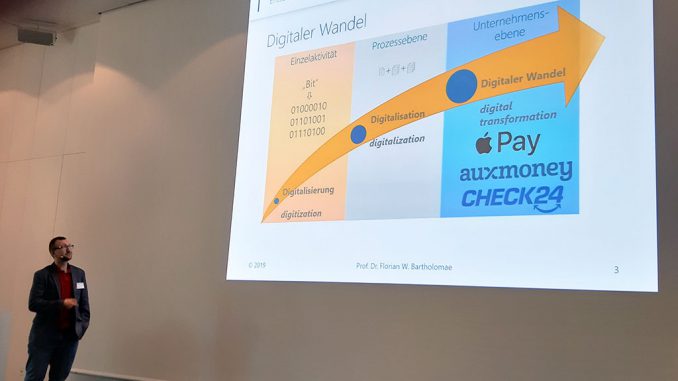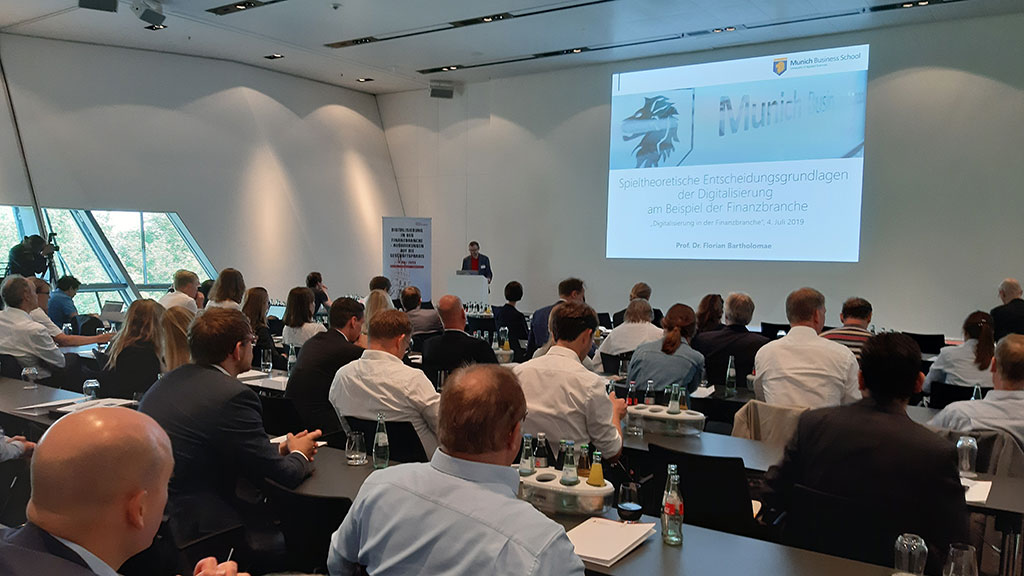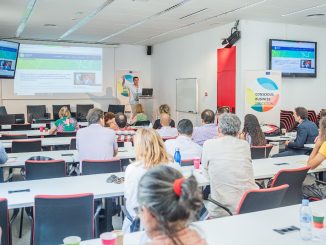
MBS Professors Dr. habil. Florian Bartholomae and Dr. Eva Stumpfegger used the opportunity of the lecture-free time, and took part in the conference Digitalisierung in der Finanzbranche – Auswirkungen auf die Unternehmenspraxis (approx. “Digitization in the Financial Sector – Effects on Business Practice”) to gather new impulses and insights. The conference took place at BMW Welt Munich, and was organized by the Hochschule für angewandtes Management (HAM) – a university of applied sciences on the outskirts of Munich – in cooperation with the Indian IT group Tech Mahindra. The program consisted of academic and industry speeches.
Professor Dr. habil. Florian Bartholomae gave a speech on the topic “Game Theoretic Decision Basis for Digitization Using the Example of the Financial Industry”, and showed how the pressure for digitization is increasingly high in this industry due to the need for cost savings on the one hand and the customer needs on the other hand. Despite all the enthusiasm, he also pointed out the risks of this development. In particular, many recent cases show that the incentive for cybercriminals to attack the financial sector is extremely high. Since the data is also highly sensitive, this threat can only be mitigated by comprehensive cooperation in the industry in order to develop and set common security standards.
In his presentation, Prof. Pierre Rafih (HAM) spoke about the basics of cryptocurrencies and their special features, especially in contrast to traditional money.
In the late morning and afternoon, the focus was on practitioners and startups. Praveen Singh from Tech Mahindra showed how his company accompanies its customers in the financial sector on the way to digitalization.
System architect Oz Tiram spoke about Kubernetes, an open source system for cloud computing, and showed the advantages of this system and in particular how startups can use it to implement their business ideas.
Richard Tynan, co-founder of TradeIX, an open platform for trade finance, introduced the Marco Polo Consortium, a blockchain-based trade finance network between leading international financial institutions.
Henri de Jong from startup Quantoz Blockchain Technology finished the day by showing how Blockchain technology can be used to process micro-transactions on the Internet of Things so that a car, for example, is able to pay its own parking space and fuel.




